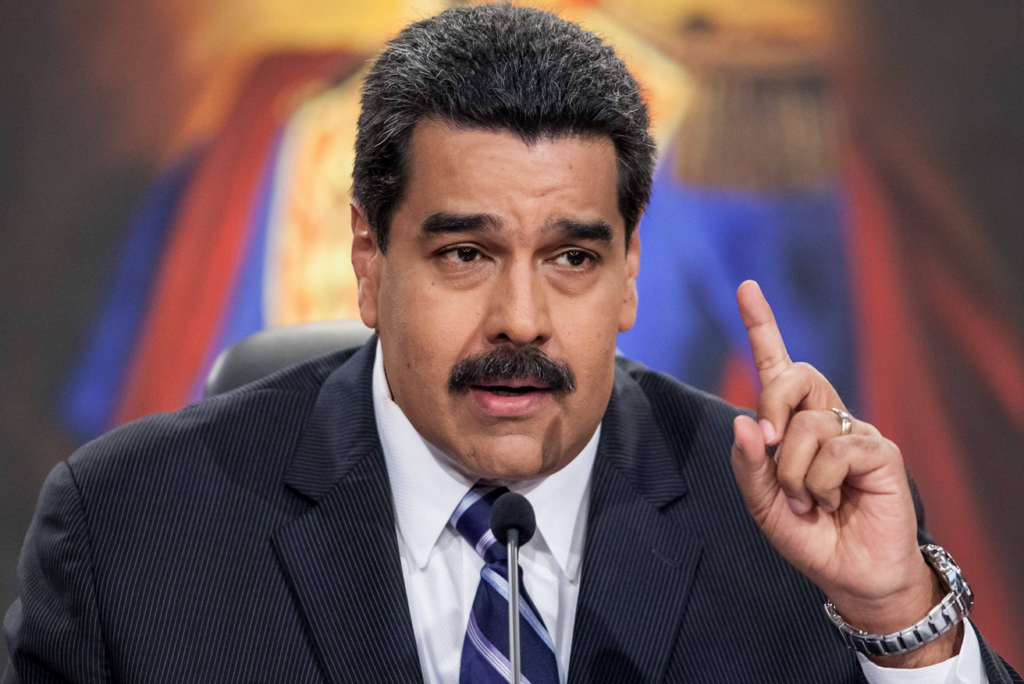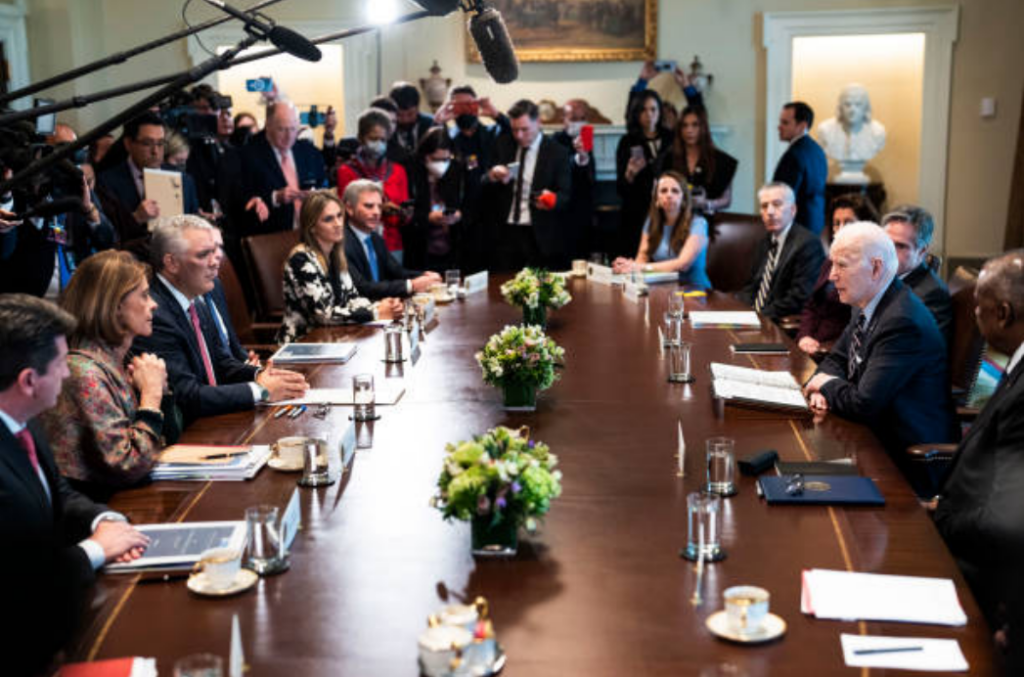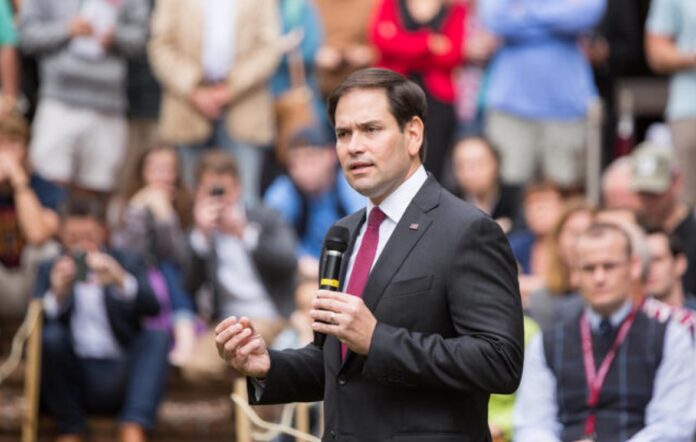Maduro’s Reign of Oppression
For nearly 25 years, Venezuela has endured the crushing weight of socialist authoritarianism. Nicolás Maduro, the heir to Hugo Chávez’s destructive legacy, epitomizes the corruption and cruelty of this regime. His grip on power, marked by electoral fraud, oppression, and exploitation, makes him an illegitimate leader unworthy of recognition on the global stage. It is vital that the United States, led by Donald Trump and his inspired choice for Secretary of State, Marco Rubio, commits to ending Maduro’s reign and restoring democracy to Venezuela.

The Illegitimacy of Maduro’s Regime
Nicolás Maduro’s presidency is riddled with fraud. His 2018 “victory” was condemned as a sham by countries across the Americas and Europe, with credible allegations of vote-rigging, intimidation, and the barring of opposition candidates. Even within Venezuela, his approval ratings have plummeted to historic lows, with polls showing that over 80% of the population opposes him. The 2024 election cycle has proven no different, with opposition candidates like María Corina Machado barred from running, ensuring Maduro’s chokehold on power.
This pattern of authoritarianism not only reveals Maduro’s lack of legitimacy but underscores his deep-seated fear of losing power to a democratic system.
Maduro’s Crimes Against Venezuela
Under Maduro, Venezuela has spiraled into one of the worst humanitarian crises in modern history. Once a prosperous nation, Venezuela’s economy has collapsed due to mismanagement and corruption. Maduro’s administration embezzled millions through food distribution programs while ordinary Venezuelans starved. The Local Committees for Supply and Production (CLAP) scandal epitomizes this: contracts with front companies enriched Maduro’s cronies while distributing overpriced, low-quality goods to the starving populace.
Maduro has also emptied Venezuela’s prisons and allowed hardened criminals, including members of the notorious Tren de Aragua gang, to spread their influence internationally. This gang has infiltrated American cities, exacerbating crime and destabilizing communities—a direct result of Maduro’s policies.

A Weak U.S. Response Under Biden
The Biden administration’s approach to Venezuela has been tepid at best. In 2023, sanctions were broadly eased under the pretext of encouraging electoral reforms—a decision that emboldened Maduro. The so-called “deal” with Caracas allowed Venezuela to profit from oil exports, with few guarantees of democratic progress. This rollback of Trump-era “maximum pressure” sanctions was a strategic blunder. It empowered Maduro financially while he continued to bar opposition candidates and repress dissent.
The Trump-Rubio Strategy: A Blueprint for Success
Donald Trump’s first administration demonstrated that strength and resolve can weaken Maduro’s grip. By imposing crushing sanctions and isolating his regime diplomatically, Trump forced Maduro to the brink of relinquishing power. Reports even suggested Maduro considered fleeing to Cuba during the height of the pressure campaign.
The appointment of Marco Rubio as Secretary of State signals a return to this principled approach. Rubio, a Cuban-American with firsthand knowledge of the evils of socialism, understands the stakes better than most. His unwavering opposition to authoritarian regimes and deep knowledge of Latin American politics make him uniquely qualified to confront Maduro. Rubio’s hawkish stance against Venezuela, China, and other rogue states ensures that U.S. foreign policy will be guided by moral clarity and strategic resolve.
No Deals, No Concessions
Under a Trump-Rubio administration, there should be no deals that allow Maduro to profit from his crimes. Previous attempts to negotiate with Maduro have only given him breathing room to consolidate power. The U.S. must maintain and intensify sanctions targeting Venezuela’s oil sector, gold mining operations, and state-owned enterprises. Simultaneously, efforts should be made to provide humanitarian aid directly to the Venezuelan people, bypassing Maduro’s corrupt apparatus.
The Path Forward: Democracy Through Strength
History shows that dictators cannot be coddled out of power—they must be confronted. The collapse of the Soviet Union, the fall of Saddam Hussein, and the dismantling of apartheid in South Africa were achieved through sustained pressure, not appeasement. The same approach must be applied to Venezuela.
Maduro’s downfall would not only liberate Venezuela but also send a clear message to other authoritarian regimes in the region. It would demonstrate that the United States stands firmly on the side of democracy, human rights, and freedom.
The Time for Action Is Now
The United States cannot afford another Castro-style endurance, where a hostile socialist regime outlasts 10 U.S. presidencies, undermining regional stability and mocking democratic values at our doorstep. Nicolás Maduro’s regime in Venezuela is more than a distant dictatorship; it is a clear and present danger to the principles of freedom and security in our hemisphere. Allowing an adversary to thrive just miles from our shores—while oppressing its people, empowering criminal networks like the Tren de Aragua, and sowing instability—jeopardizes both our moral standing and national security.
Under Maduro’s rule, Venezuela has become a hub of lawlessness, migration crises, and geopolitical manipulation. The lessons of Cuba’s longevity under Castro must guide our strategy today: appeasement is not an option. A firm and principled stand, led by individuals like Marco Rubio—whose understanding of socialism’s dangers is unparalleled—is critical to ending this reign of tyranny.
Maduro must go, not tomorrow, not years from now, but now. The cost of inaction is too great, and the stakes are too high. This is not just about Venezuela—it’s about ensuring that freedom triumphs over tyranny, and that America stands resolute against oppression in our own hemisphere.
Disclaimer:
This article is an opinion piece that provides analysis, commentary, and educational insight on recent news topics, informed by reliable sources. It reflects the author’s sole opinion, and neither the newspaper nor its website, as a news, commentary, and educational platform, bears responsibility for any misinterpretation or consequences arising from this analysis. For the latest breaking news and official results, refer to the news organizations cited above. This article does not constitute primary reporting.






